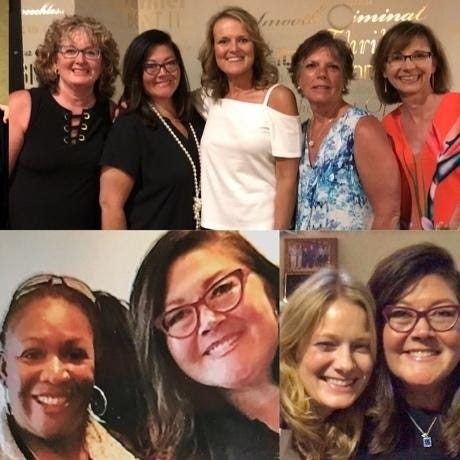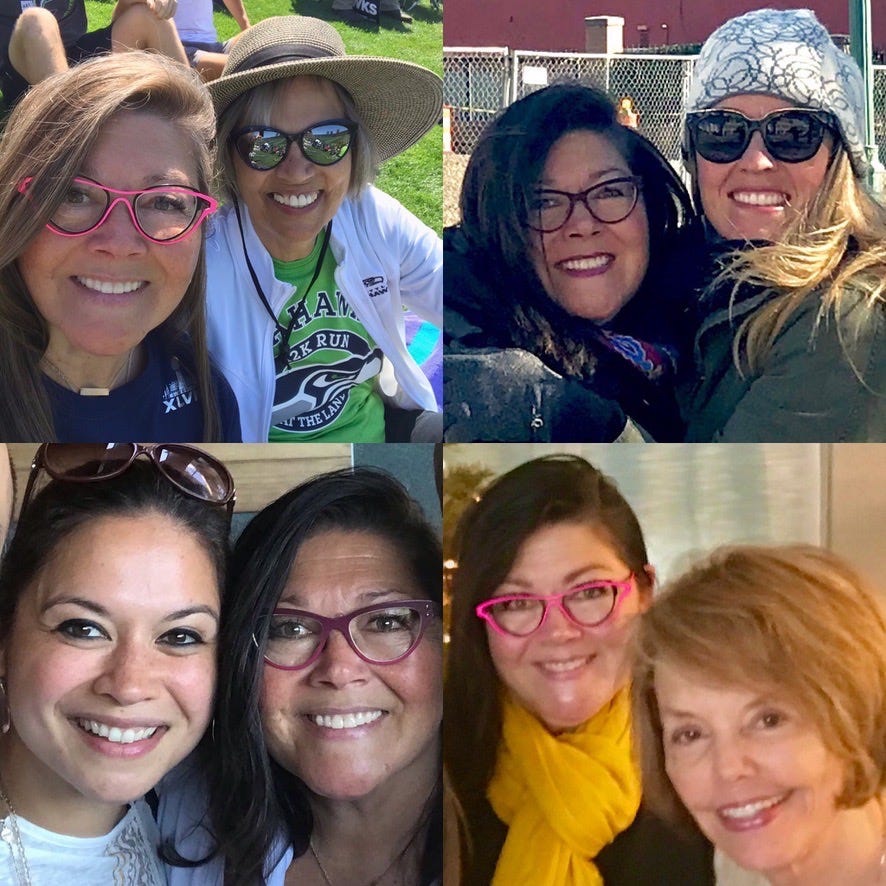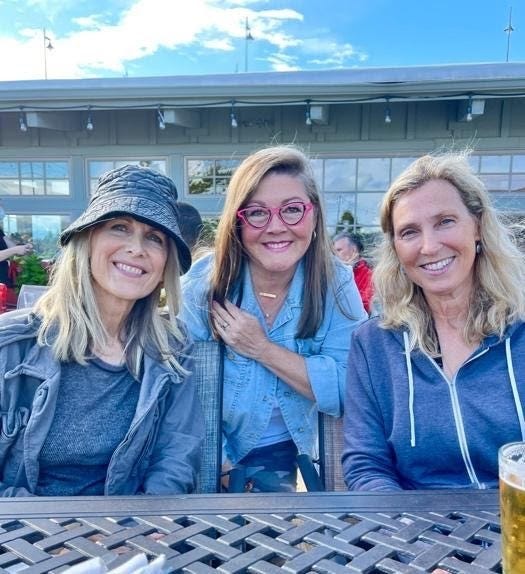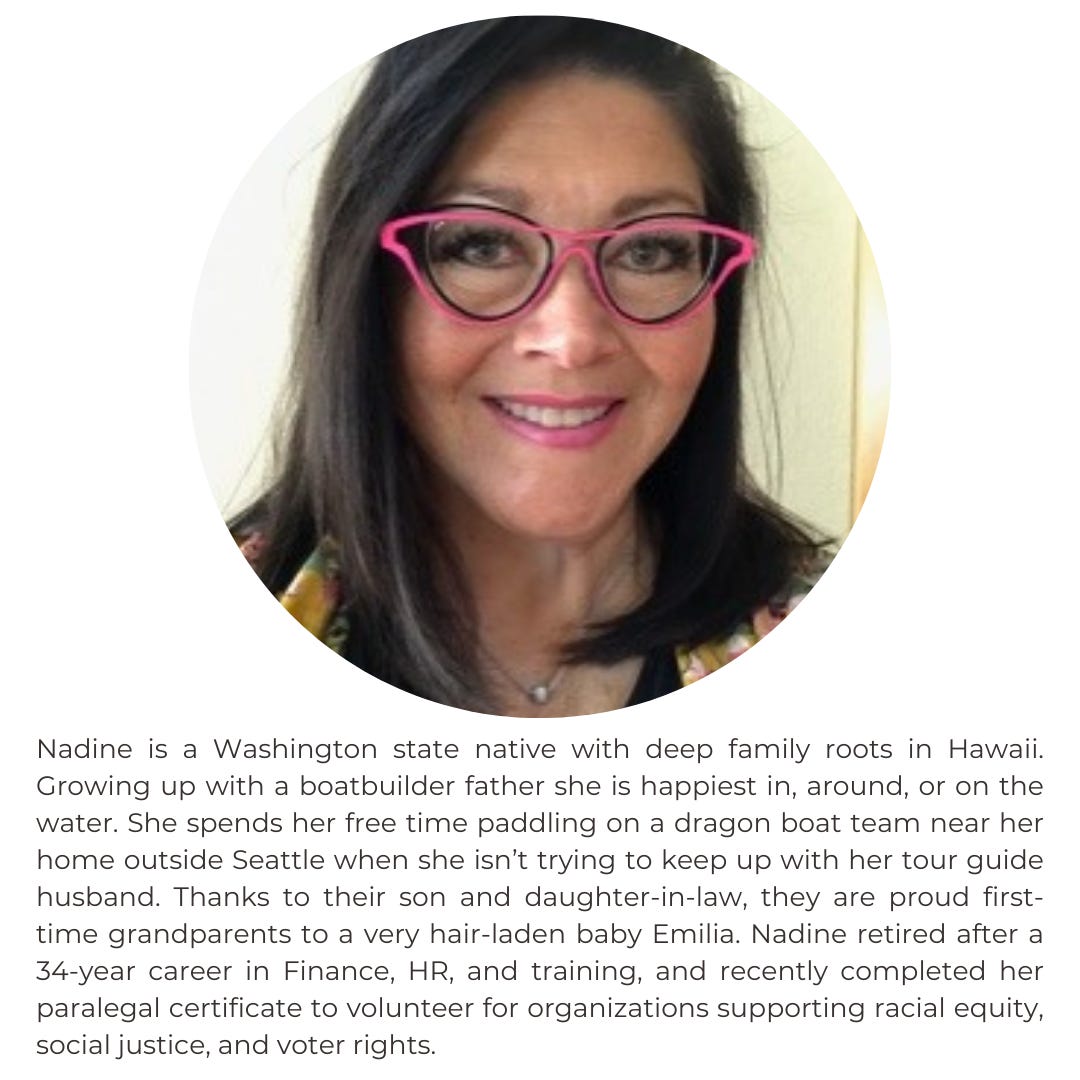Welcome to our ongoing Friendship Series—today we focus on our 50s!
We’ve been so fortunate to hear from three women share about their female friendships over the course of the last three weeks. These letters are a part of a series we are doing about women and their guiding friendships with other women. In case you missed them, be sure to read through
You’ve already listened to me (Molly) rave about my friend, Nadine, and many of you experienced her insightful introspection and self-awareness in her beautiful letter, Othering, from September. I always want to know Nadine’s opinion on any given topic and when she agreed to share about friendships with women in her 50s, I was so thankful. Nadine’s circle is robust and international; she cultivates friendships well and thoroughly, remembering all the tiniest of details and special parts of her friends’ lives. I’m incredibly thankful that she counts me among her circle of women and I never take it for granted. —Molly
“The best mirror is an old friend.”
George Herbert
I was a bit of a unicorn growing up, probably because I grew up as an only child, and because I didn’t see many (any) families that looked like mine as my parents were much older than my friends’ parents and were an interracial couple. Therefore, in the same way that my family didn’t resemble my peers’ families, female friendships were modeled to me in a way that also seemed to be unique: They had little to do with gender, age, ethnicity, or marital status.
My mom literally had a squad of best friends that included both males and females, some 20 years her junior and others 20 years her senior, some single, some married, some divorced or widowed, and they were from a variety of ethnicities. These groups were formed everywhere she lived or worked and became my dad’s best friends, too. My parents’ friends were their lifelong friends until they both passed away in their 80s.
I’ve emulated these same kinds of close friendships in my life. My female friends are very different from one another, don’t necessarily run in the same circles, and seemingly have very little in common (other than a shared friendship with me). Most of these relationships have lasted since they’ve begun. While there may have been some rocky moments or extended absences between connections, it has actually become easier to maintain friendships as I’ve aged.
Perhaps I’m less concerned with what others think of me (although I’m certainly not immune to feeling inadequate upon occasion) and I’m more confident in my ability to BE a good friend.
What I do know is that for me being a good friend is directly connected to being aware of, and secure in my own beliefs and values, which translates to who I want to spend my time and energy with.

With that, I have definitely seen a change in my relationships with women over the last, ahem, almost 60 years. And the change probably has more to do with my own growth and the evolving perception of women in American society than anything else. I can now appreciate the struggles my mother and grandmother went through in a way that I couldn’t before. I know I am much less tolerant of any kind of drama when it’s being used in a dysfunctional fashion. I will readily defend a woman’s right, place, and voice when they are unable to defend themselves.
While I have always maintained friendships with males, I see now that as a younger version of myself, it was easier to be friends with males in order to avoid what I perceived as the competition between women. A competition that, in my mind, I could never win. As an adult, I know that there is a different kind of trust and comfort you get being with other women that you don’t feel with men.
There are two women with whom I have been friends for a very long time. Denise and I became friends, we think in kindergarten, but for sure by first grade; and we met Wendy in junior high school. The three of us remained close through high school and college although we didn’t go to the same universities nor did we follow the same timeline. We have lived in different cities, and even on different continents, really since we graduated from high school.
When you have been friends with two women this long, they indeed become the family that you choose. They know things about you that you don’t remember (or want to remember), and yet they STILL choose to be around you. You become so interwoven in each other’s lives that you are like the thread in a fabric—not necessarily something that you see on a daily basis, but if it starts to unravel or needs attention, you don’t hesitate to tend to it.
When we are together, whether it has been a week, a month, or a year, there is something ultra-comforting knowing that we don’t have to ever explain the history, context, or family background to each other. There is no concern that the conversation will turn judgmental no matter how long it’s been since we’ve talked, what the current crisis is, or what world problem we might be in disagreement about.
I look at these two women as true gifts in my life. These two women are very important threads in the fabric that is my life; therefore, as their threads go, so goes my life.
I also have friends in a different age demographic than myself. One of these women falls into the younger group and is the co-creator of this newsletter (Molly).
I consider some of my very best friends among those that are older and younger than myself; this began when I started working full-time after college in 1985. Up until that time, I was primarily surrounded by people my age. Once I started working, however, especially at a huge company such as Boeing, I was around people who were easily 40 years older than me.
For me, the benefits of having friends from different generational groups is the same as having friends from different cultural backgrounds: you get the opportunity to see life from a perspective that is different from your own, you learn that not everything is exactly as it seems to you, you not only have the opportunity to learn from others, but you have the opportunity to teach others what it’s like from your age perspective, and really, isn’t teaching just another form of learning?

Because I had very good role models from my parents, teaching me the value of friends you can trust and the value of friends from different walks of life, I believe that I know that value, too. More importantly, I try to BE that kind of valuable friend to others.
“Keep the ones who heard you when you never said a word.”
In gratitude,
Nadine Rosendin
PS. Which part of Nadine’s story resonates most with you? Have your relationships changed as a function of aging? Share with us below in the comments and consider sharing Nadine’s letter with a friend!
Previous Posts from the Friendship Series









Of course I bawled when I read Nadine's "letter." Who knew when I was 5? 6? years old that I would have a life-long friend in Nadine who would ground me and provide a compass over and over again. A quiet non- judgment guide who could have easily judged - and I mean EASILY! It's not an accident that our paths came together and weaved in and out for a life time. It feels divine!
One of the best things Molly has ever told me was how important it is to have friends of all age groups and I've made that a priority ever since!